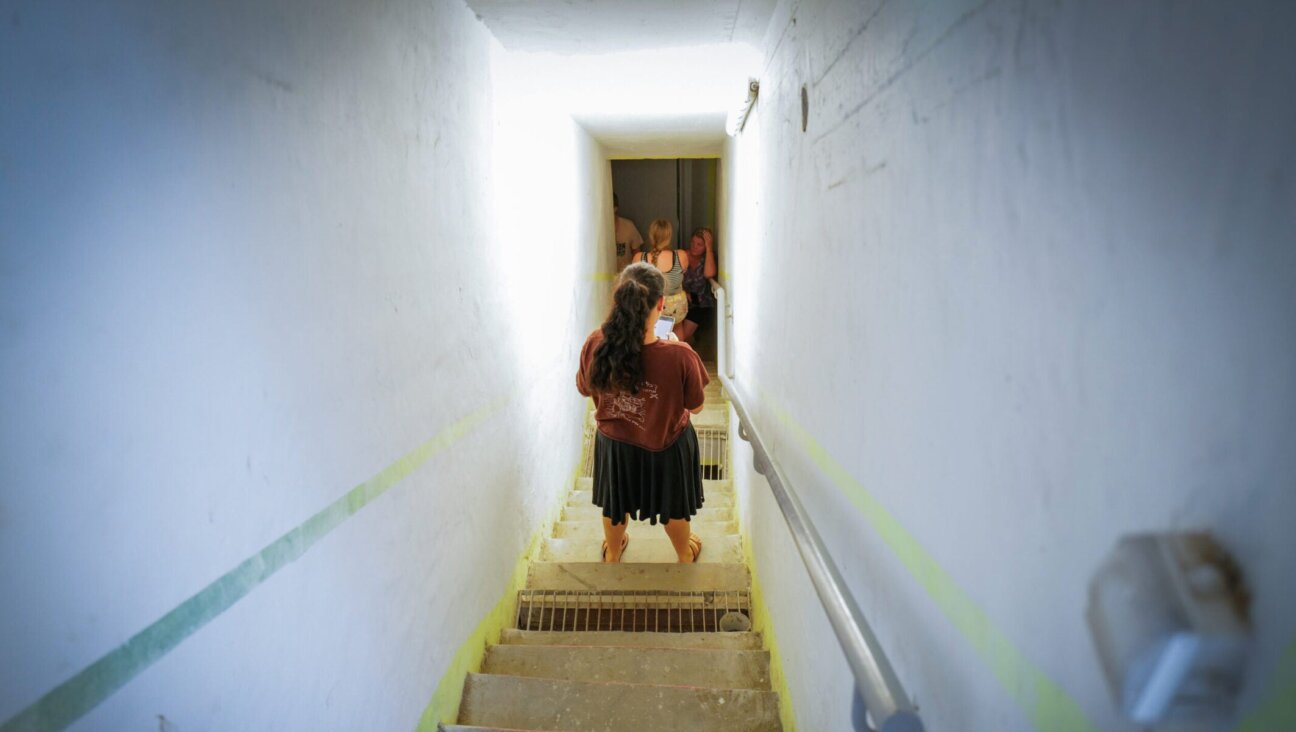Bush’s Homeland Security Cuts Split Local and National Groups
WASHINGTON — The local Jewish community in New York is at odds with national Jewish organizations over the Bush administration’s decision to cut counter-terrorism funding to the city.
Leaders of the local community argue that Jews have a special stake in maintaining New York’s high level of funding from the Department of Homeland Security’s Urban Areas Security Initiative. But officials at several national Jewish groups said that they were sitting out the fight, explaining that they did not view the matter as a “Jewish issue.”
Speaking not for attribution, two officials with major national Jewish organizations cited another reason for the silence of some groups: They fear that if terrorists effectively hit a different town in America, and local authorities are criticized for being ill prepared, people may accuse the Jewish community of putting its interests before those of other Americans.
The Department of Homeland Security stunned New Yorkers at the end of last month by announcing that under the new formula for distributing funds from the security initiative, the city will receive $83 million less this year than the $207 million it received in 2005 — a 40% cut.
Members of the state’s congressional delegation and local politicians strongly protested the decrease and are demanding a review. So is the Jewish Community Relations Council of New York — a coalition of more than 60 organizations from across the religious and political spectrum — which in recent months has been actively lobbying to maintain or increase the city’s funding level. The JCRC has been working with local law enforcement agencies and with the state’s congressional delegation, and now it is drafting a letter to President Bush, urging him to reconsider the cut, according to the organization’s associate executive director, David Pollock.
The funding reduction affects all New Yorkers, but Jews have an added concern, Pollock said. In addition to boasting the country’s largest Jewish community — an estimated 975,000 people in New York City proper — the New York metropolitan area is home to about 1,000 synagogues, 100,000 Jewish day school students, scores of Jewish icons and landmarks, and hundreds of Jewish institutions. Furthermore, Pollock pointed out, Islamic terrorists have in the past indicated their intention to target New York, partially because of the heavy Jewish presence there.
Despite such arguments, national Jewish organizations have not weighed in on the controversy.
“Homeland Security funding is a national and a regional issue, not a Jewish issue, and the Jewish community has more pressing issues on our agenda,” said Abraham Foxman, national director of the Anti-Defamation League. Foxman, who works in Manhattan, added: “Our elected officials, who represent both the Jewish and general communities, have taken a clear stand. We don’t see this as a Jewish issue, for it’s not only the safety and security of Jews, but it’s the safety and security of all New Yorkers that is of concern.”
Officials at other national Jewish organizations, including ones based in New York, were in agreement. “The city’s leadership is ably pressing its point of view that it’s been short changed and the leadership of the city may be right,” said Marc Stern, assistant executive director of the New York-based American Jewish Congress. “But Jews are not differentially affected” by the decision.
“There is no way to say that this is putting Jews at risk, and no reason to think that if the criteria are skewed, in whatever way, the Jewish factor plays any role,” Stern said, adding: “We are all national organizations; how are we going to decide whether in fact the government is ranking risks improperly? If it’s wrong, it’s putting everyone in New York City at risk.”
Nathan Diament, who directs the Orthodox Union’s Washington-based Institute for Public Affairs, said, “I don’t think we have a unique angle on the overall pot of money that is different from New Yorkers generally.”
When asked if he would have liked support from national Jewish groups, Pollock replied, “I’ll just say that we were out there” fighting for the funds. He noted that almost all major American Jewish organizations are headquartered in New York.
In an earlier funding fight, two New York-based national Jewish organizations — the Orthodox Union and United Jewish Communities, the national roof body of local Jewish charitable federations — joined other national nonprofit groups three years ago in lobbying successfully for congressional legislation, setting aside the relatively modest sum of $25 million annually to help cover security-related costs for religious, cultural and other nonprofit institutions. That money has been folded into the $1.7 billion in spending for states and local governments that the Department of Homeland Security announced late last month.
Officials with Jewish groups, as well as congressional staffers, said that even if Jewish organizations had mobilized in favor of funding for New York, their impact would have been modest.
“Once it became clear that these funds are not immune from becoming local pork,” a congressional staffer who is familiar with the issue said, “there was little that could have been done to prevent them from being diluted.”
When the program was launched in 2003, it was seen as a way to set aside a block of grants that the Department of Homeland Security would have discretionary authority to allocate based on risk, free and independent of local pork-barrel interests. At first, only seven of America’s largest cities were designated — Washington, Los Angeles Chicago, San Francisco, Seattle, Houston and New York — with each receiving $100 million. But, as a result of lobbying by other local governments, Congress decided to change the criteria for allocating funds in a way that would reflect “needs” in addition to risks. As a result, this year’s $700 million budget is being divided among 95 towns across America.
New York is still the single largest recipient. This year it is receiving slightly less than 18% of the funds, compared with 19% it received in 2004 and 2005. But the pot of money being distributed was reduced to $700 million by $125 million.
In a June 7 opinion essay in The New York Times, Secretary of Homeland Security Michael Chertoff defended his office’s budget decisions.
“The Urban Areas Security Initiative awards are designed as capacity building investments,” Chertoff wrote. “We are looking to pay for new equipment and projects that increase the nation’s overall preparedness. They are not for routine and recurring operating expenses like salaries and overtime.”
















